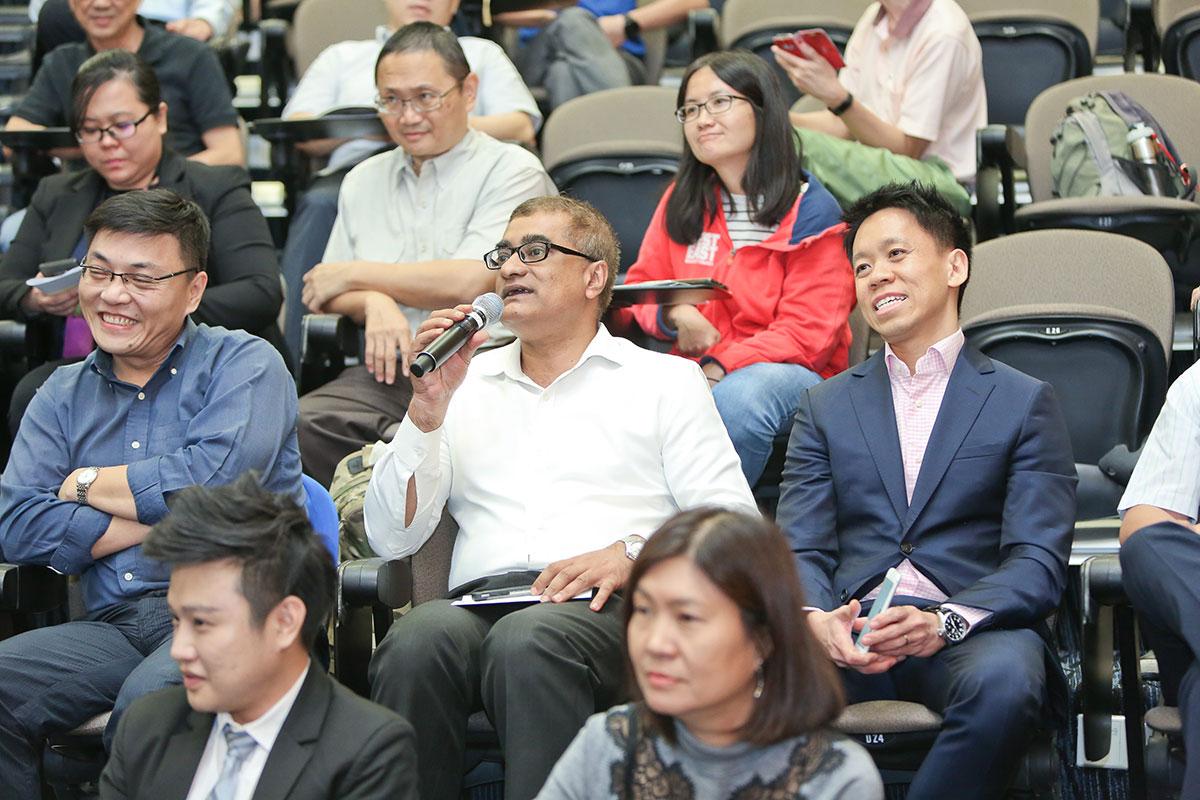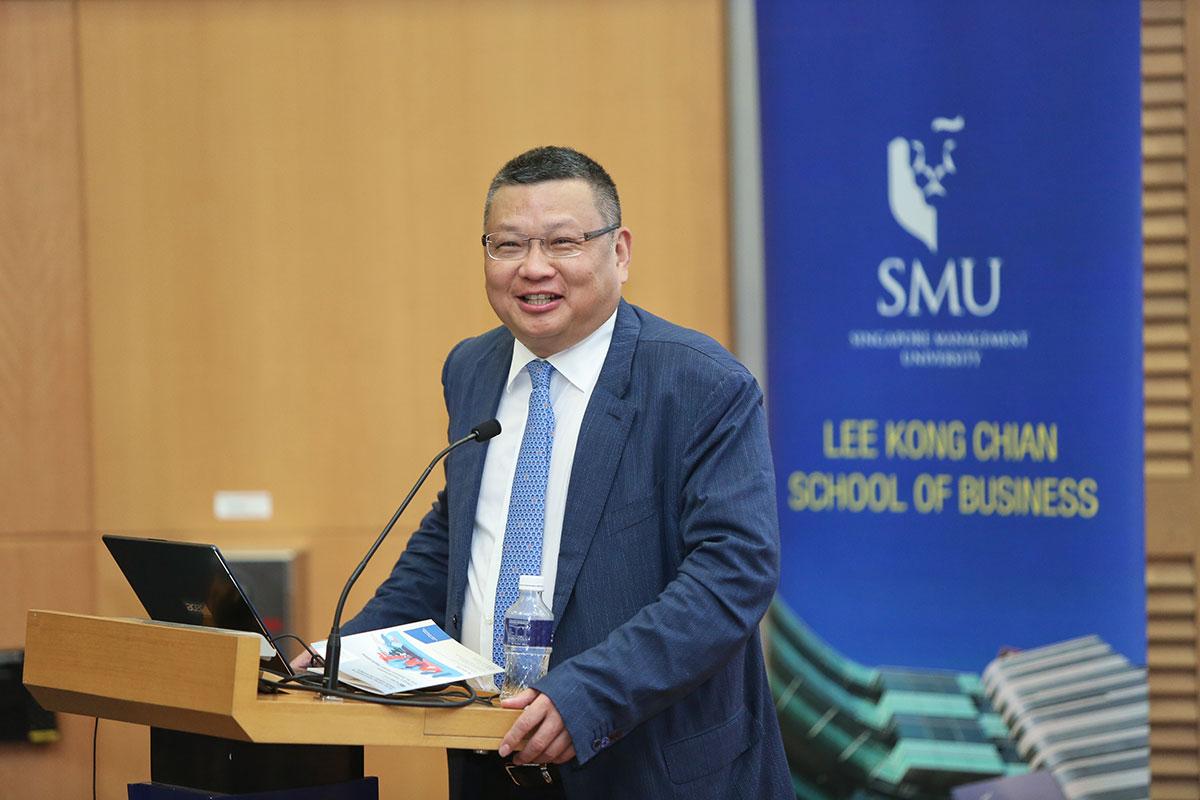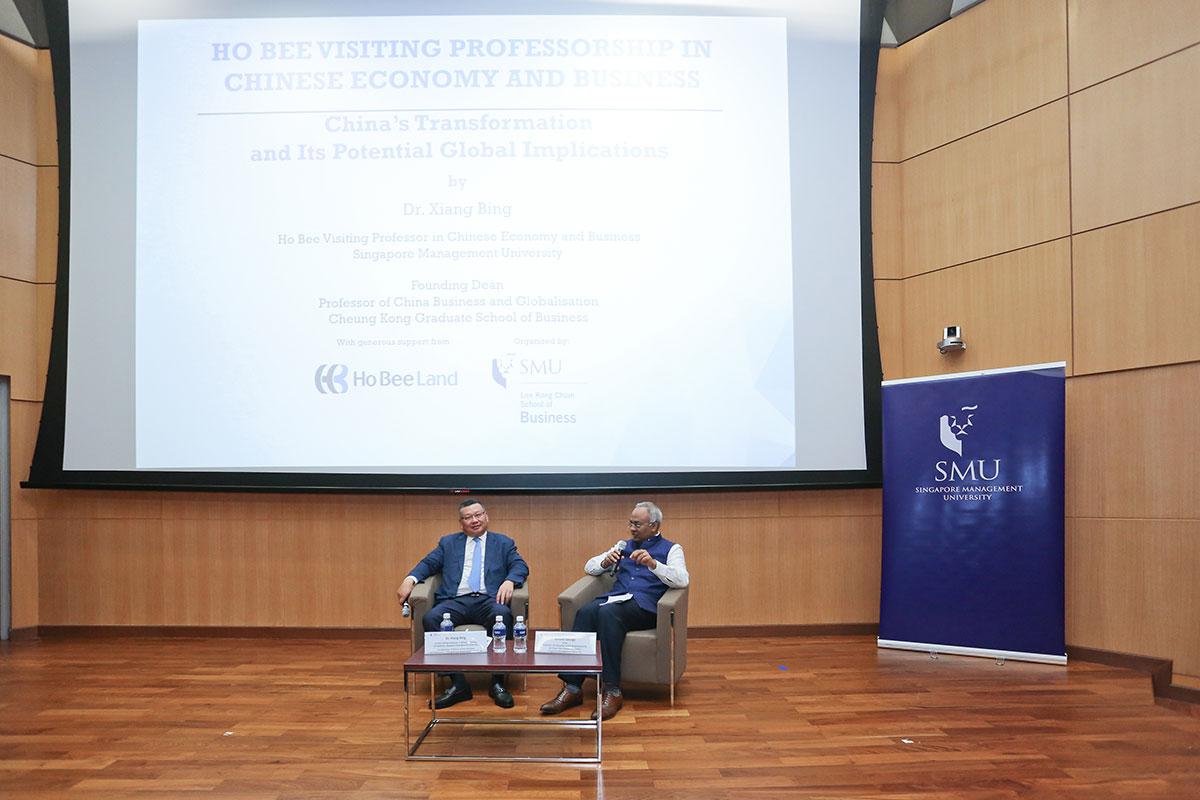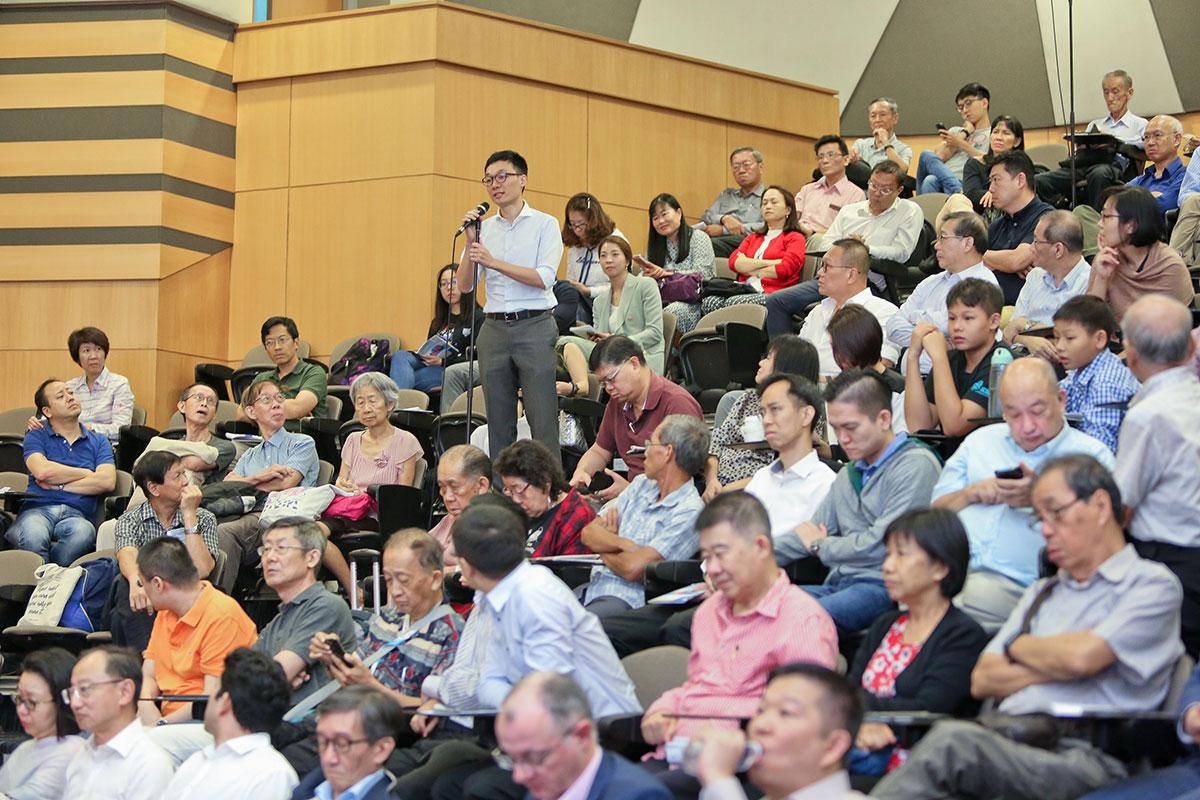The embracing of disruptive technologies, the development of the services sector, new rounds of deregulation and urbanisation, and a consumption and entrepreneurial boom are some of the factors in China’s ongoing and forthcoming transformation.
While these are some of the most important growth factors for China going forward, major challenges remain, such as trade friction between China and the United States, and the threat of decoupling between the two superpowers, as well as potential pitfalls in reforming state capitalism and state-owned enterprises (SOEs).
These were some of the insights provided by Dr Xiang Bing, the Ho Bee Visiting Professor in Chinese Economy and Business, who delivered a lecture on China’s Transformation and Its Potential Global Implications on November 8, 2019, at the Ngee Ann Kongsi Auditorium.
In his talk, he honed in on China’s affinity for economic disruption.
“I really think the idea of economic disruption is central to economic development,” said Dr Xiang, who is the Professor of China Business and Globalization at Cheung Kong Graduate School of Business (CKGSB).
He noted that while 40 of the top 100 innovative firms in the world are Japanese, only two out of 494 so-called “unicorn” companies today — privately held startups with a current valuation of US$1 billion or more — are from Japan. Conversely, China is reportedly home to 206 unicorns.
“China has enjoyed the extent of economic disruptions in terms of newly emerged large scale companies and newly minted billionaires. China has been the best example in that regard, [even though it] may not be the best example in innovations,” Dr Xiang told an audience that included pre-university students, undergraduates and faculty of SMU, executives and civic leaders, entrepreneurs, government officials and other interested members of the Singapore community.
He argued that China’s future would lie in its private sector, unlike in the past.
“China succeeded in the past by the use of a combination of state capitalism and neoliberalism,” he said.
“Evidence of neoliberalism is in the prominence of private companies in China. Today, over 60 percent of GDP and over 90 percent of new jobs come purely from the private sector. So the private sector is the story of China’s [ongoing] economic success.”
While the entrepreneurial drive is still going strong in China, with deregulation set to unlock more growth, and disruptive technologies a boon for current and future companies to exploit, Dr Xiang sounded a note of caution. Many companies in China are still SOEs; in fact, they dominate seven sectors. And while China has the most number of Fortune 500 companies after the US, most of them derive revenues largely or solely from the domestic market, the key exception being tech giant Huawei.




Article courtesy of SMU Lee Kong Chian School of Business and was first published here: https://business.smu.edu.sg/news/2020/jan/30/china-benefits-embracing-disruptive-tech-success-not-assured?from=groupmessage&isappinstalled=0